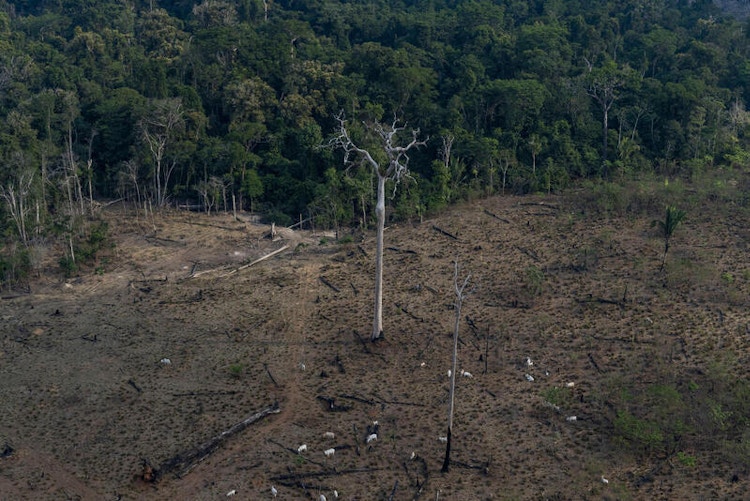The incriminating links between forest fires and Brazilian leather
In the Amazon rainforest, a total of 170,000 forest fires occurred in areas supplying leather for Europe, satellite data show.

Forest fires often break out up where the cattle industry wants more space for cattle pastures Photo: Greenpeace, Victor Moriyama / Amazônia em Chamas
Cattle farming is the main reason why the Amazon rainforest is being destroyed, as the forest is being cleared to make way for cattle pastures. Therefore, it is the responsibility of companies and countries that import cattle products to make sure that they do not contribute to the razing of the rainforest.
However, an analysis of forest fire data made by Rainforest Foundation Norway reveals a disturbing pattern: European importers of Brazilian leather obtain raw materials from the areas where the forest fires raged.
“During last year’s fire season in the Amazon, a total of 170,000 rainforest fires were registered where cattle for the European leather market graze, what we call leather buying zones,” says Anne Leifsdatter Grønlund, senior adviser at Rainforest Foundation Norway.
She explains that this shows an incriminating link between leather exports and forest fires.
"Simply put: when the rainforest burns, it doesn’t take long before cattle move in. These fires do not occur by themselves”.
The link between leather production and deforestation
Europe is the largest market for Brazilian leather. Much of this goes to the automotive industry, which uses leather in car seats and other interiors. Brazilian leather is also found in shoes, clothing, and furniture.

Approximately 170 000 forest fires broke out in the "buying zones” to export leather to Europe last year. Photo: Greenpeace, Victor Moriyama / Amazônia em Chamas
This makes European companies and consumers co-responsible for the cattle industry’s devastation of the rainforest.
"European companies that sell or make products with leather must assess their supply chains and set clear requirements for their suppliers and sub-suppliers,” says Grønlund. She further explains that leather is more than just a by-product of beef production and that importers of Brazilian leather are contributing to make it more lucrative to burn and destroy rainforests.
"For a slaughterhouse, the meat makes up somewhere between 80 and 90 percent of the profit from each individual cow. Still, since the slaughterhouses operate with small margins, the sale of hides is often crucial to turn a profit. Leather production has become a billion-dollar industry in Brazil. That’s how the demand for leather is also an incentive behind the deforestation of the Amazon.”
The industry must demand traceability.
If companies stopped buying hides from companies linked to deforestation, they could break the link between hides and forest fires.
That may be easier said than done: The supply chains for Brazilian cattle are long and complicated, and the slaughterhouses do not check whether the cows they buy have grazed in deforested areas.

“Now is the time for the industry to make it clear that they don’t want to buy leather from deforested areas”, says Grønlund at Rainforest Foundation Norway. Photo: Greenpeace, Victor Moriyama / Amazônia em Chamas
"At best, they check that the farms they buy from are free of deforestation, but that means nothing, to be honest. The cow is usually passed on from one farm to two or three other farms before it is slaughtered. That means it may have been born and grazed on destroyed rainforest, but that is not even checked,” says Grønlund, and continues:
"This means that we need a change on the ground in Brazil. The slaughterhouses must be able to trace where each cow was born and grazed and guarantee that all the farms a cow has visited are free of deforestation.”
Grønlund points out that this will not happen by itself, so it is essential that European leather importers urgently demand more traceability from their suppliers. "Now is the time for the industry to make it clear that they don’t want to buy leather from deforested areas.”
